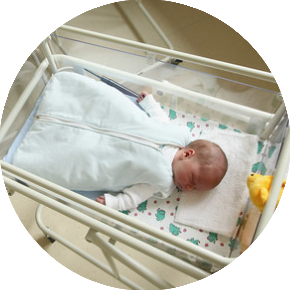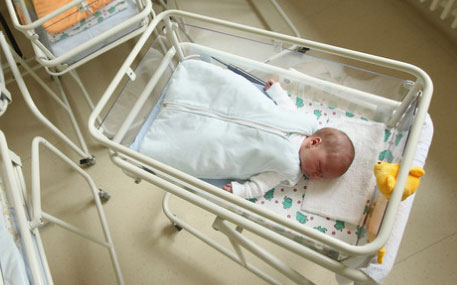Playwrights challenge childbirth taboos

 A theatre festival has enlisted female playwrights from seven countries to give an airing to stories that are not normally widely discussed about having children - from questions around abortions to inadequate access to healthcare.
A theatre festival has enlisted female playwrights from seven countries to give an airing to stories that are not normally widely discussed about having children - from questions around abortions to inadequate access to healthcare.
In the US, it costs an average of $10,800 (£8,800) to give birth with a natural delivery.
In India, four million women are sterilised every year.
In Brazil, the government is trying to quell a "Caesarean epidemic".
In Syria, hundreds of thousands of children have been born to women displaced by war.
In the time it took you to read those four facts, about 40 babies have been born into the world.
But the differing levels of healthcare and contrasting cultural pressures around the globe mean the circumstances of their arrivals will have been vastly different.
That is the inspiration behind the Birth festival at the Royal Exchange theatre in Manchester, which has commissioned seven writers to tell stories about the dilemmas and difficulties experienced by women around the world.
The writers have been recruited from countries including:
- China, where the one-child policy has just become a two-child policy
- Brazil, where the Caesarean rate has hit more than 50%
- India, where some women are offered incentives to get sterilised
Indian writer Swati Simha visited the village of Noamundi in the state of Jharkhand, where women from the indigenous Adivasi population are offered money to be sterilised because, she says, the authorities want to marginalise that community.
"The central thing of the whole Birth question is - why spend so much trying to sterilise the women when you can spend the same money to improve the healthcare?" she asks.
"I feel they don't want them to take control of their own lives."
Birth also includes a play using the words of real Kenyan women with fistulas, holes in the birth canal caused by difficult labour.
Playwright Mumbi Kaigwa says: "There are a lot of people who don't know that there's a cure, and because of their situation are under the misinformation that it's a curse, or it's because they're a woman, or because they're dirty, or all sorts of reasons. So they're cast out."
There is also a play about three Syrians:
- one who has stayed in Syria and has been raped
- one who has fled to Lebanon and is forced into prostitution
- one has travelled to the Jungle refugee camp in Calais to find her husband
For a Syrian woman, simply having a child is "an act of rebellion", according to Syrian writer Liwaa Yazji.
She says people often ask why someone would have a baby "when they're living in a tent, when the father is fighting I don't know where and there is no money".
"But then the women, they don't want to give up," she says.
"They want to bring life and instinctively it's their own right.
"It's not a 20-day war.
"People are getting older, so would you really stop living?
"And with all the death in Syria, so many people instinctively think of fighting this death by just having another life."
The festival includes stories from the West too:
- one from the US, which is ranked as the most expensive place in the world to give birth
- one from the UK, about a woman travelling to London from Northern Ireland, where abortion is illegal in most cases
"It's not about me being Syrian and knocking on your door and bringing tragedy," Yazji says.
"Even if you're living in the UK or US, you have questions to raise about this issue [of childbirth]."
Birth's creative director, Emma Callander, says: "It's interesting - there are certain stones that need to be turned in the UK story as well."
The idea behind Birth, she says, is to raise important questions about maternal healthcare that do not get an adequate airing in the media.
"In raising those questions, we're hoping that leads to direct action in improving these situations," she says.
"These plays have been created for this festival, but this is only the beginning."
After the festival, organisers are making the seven plays available for charities and educational organisations to use free of charge for three years in the hope that they will have a wider influence.
"We're hoping that a group of midwives in Mali who are looking for a way to discuss fistula and have already used diagrams and videos and need a new way to start that conversation - they have a play to do it with," Callander says.
"Or we go to the communities in India which are suffering from the issues within Swati's play and present this piece to them for solidarity, for empowerment, to see that somebody on the other side of the world is listening and cares and has created this work for them.
"And the same with Syria - is that play read by women who have suffered these similar situations themselves, and in speaking those stories find a level of healing inside themselves?
"We have these theatrical provocations to raise debate, raise awareness and also to encourage people - be they mothers, student midwives, politicians - to be able to really look at the picture and see the human story.
"That's what theatre does so well."

